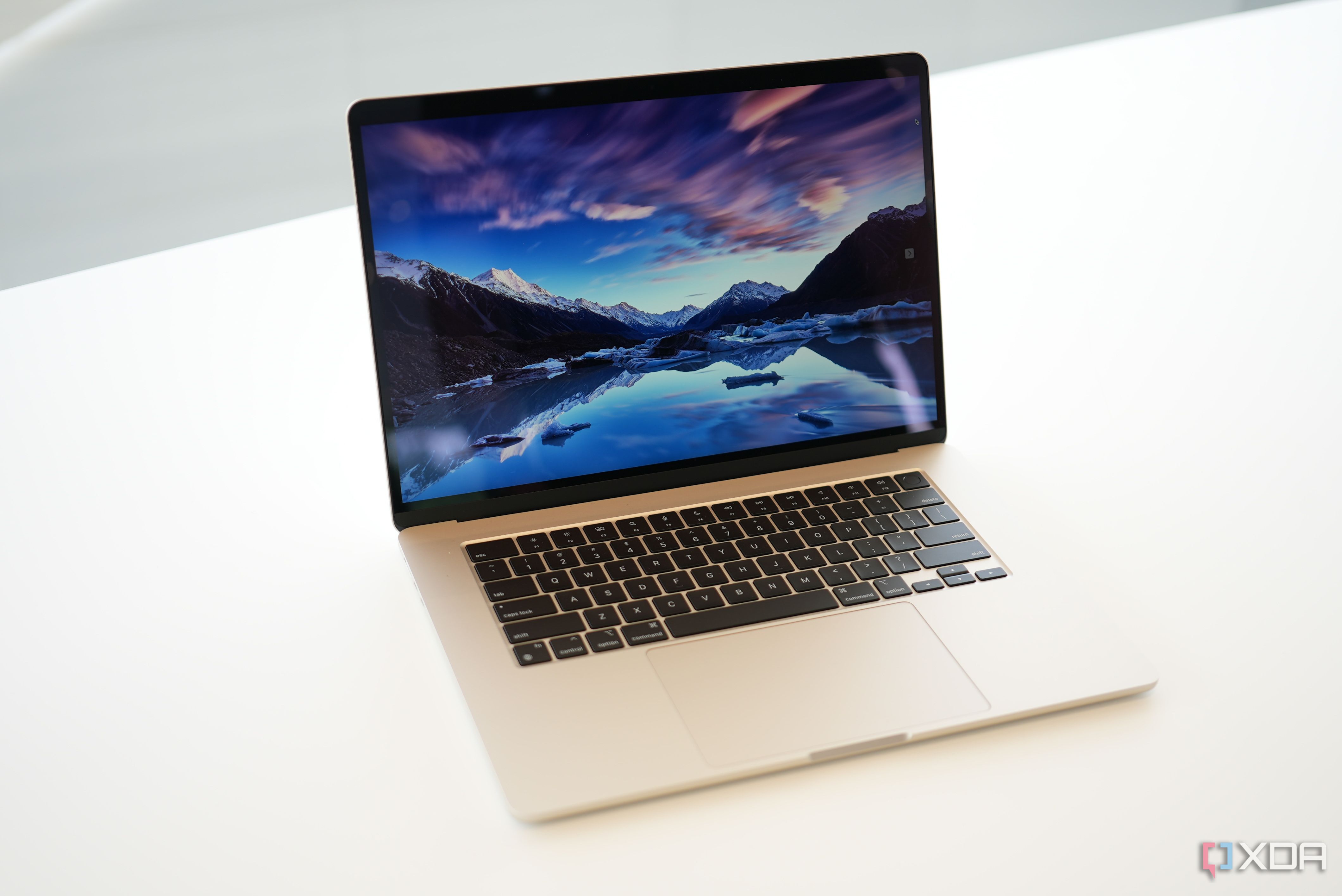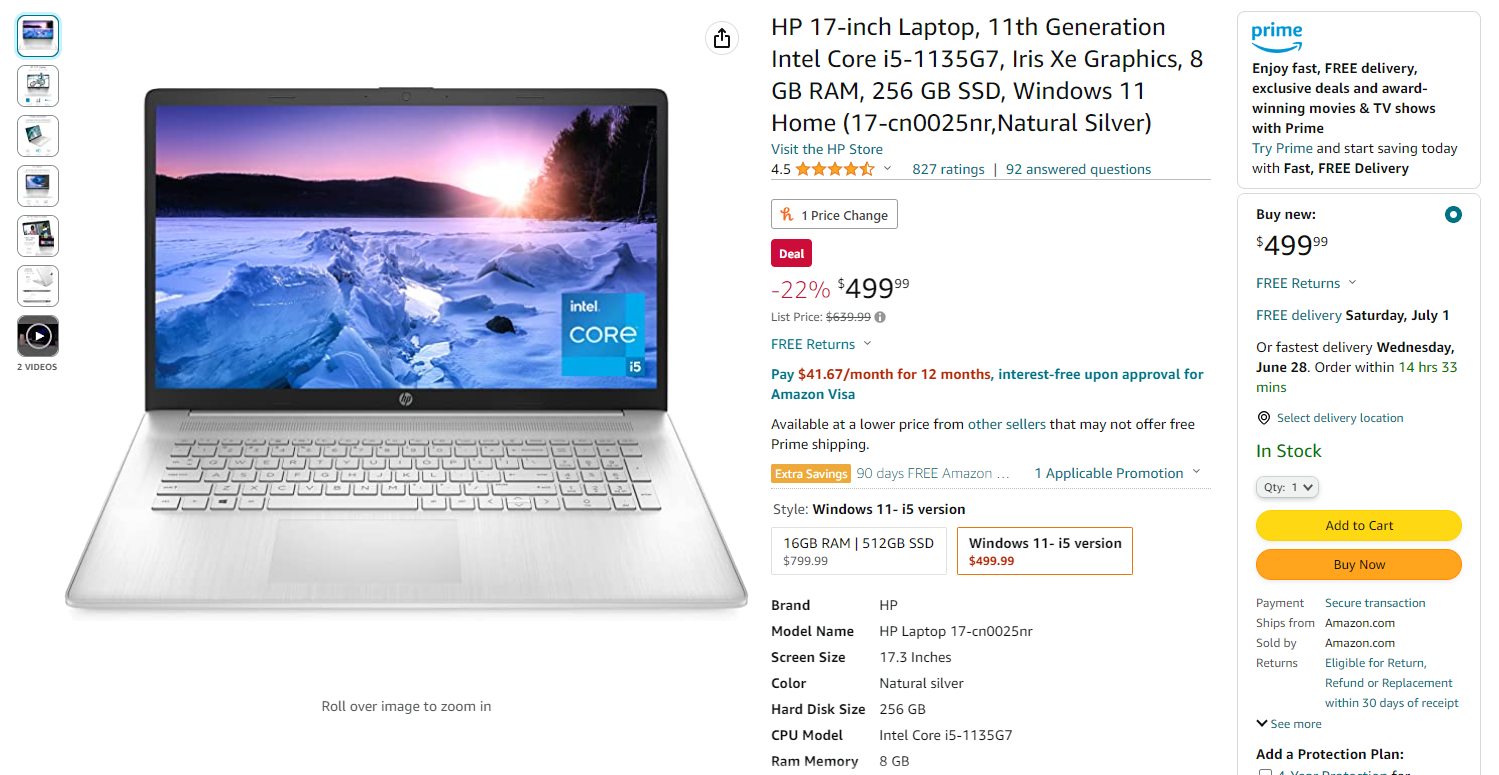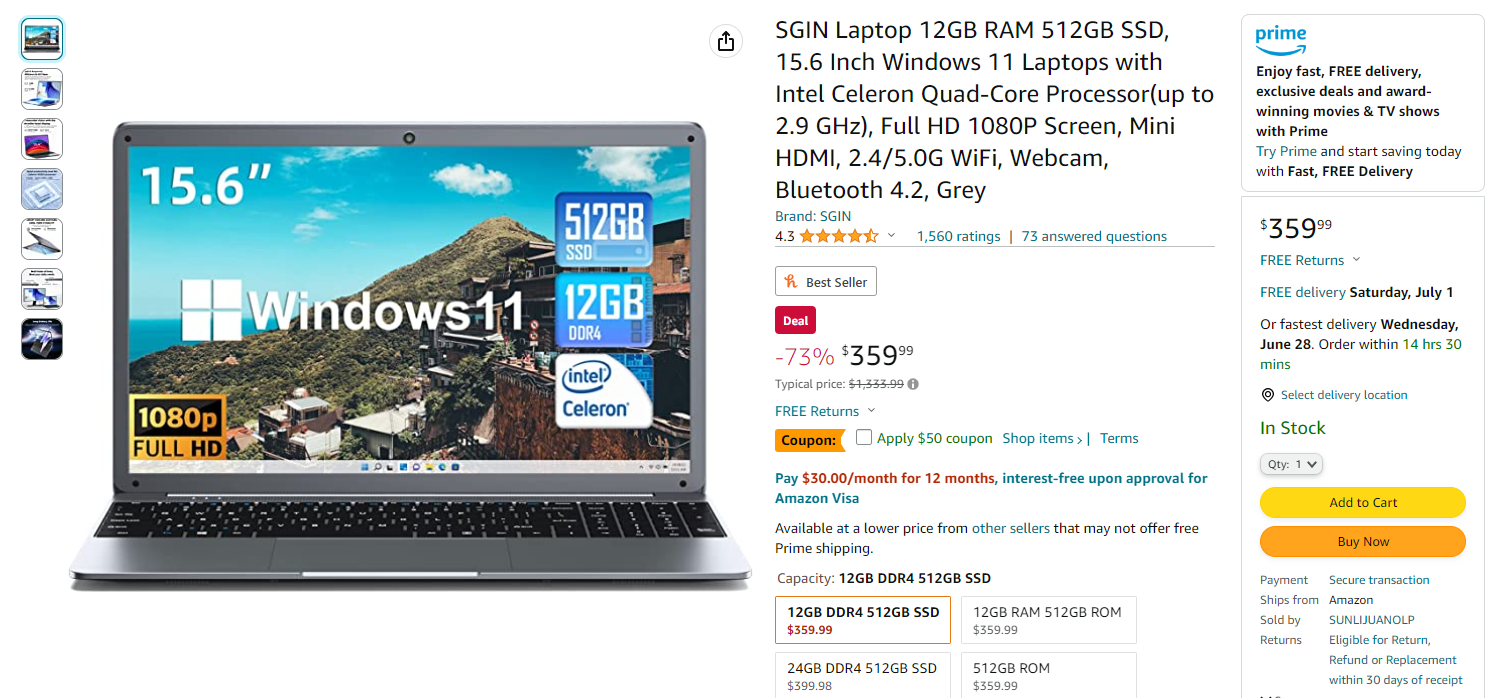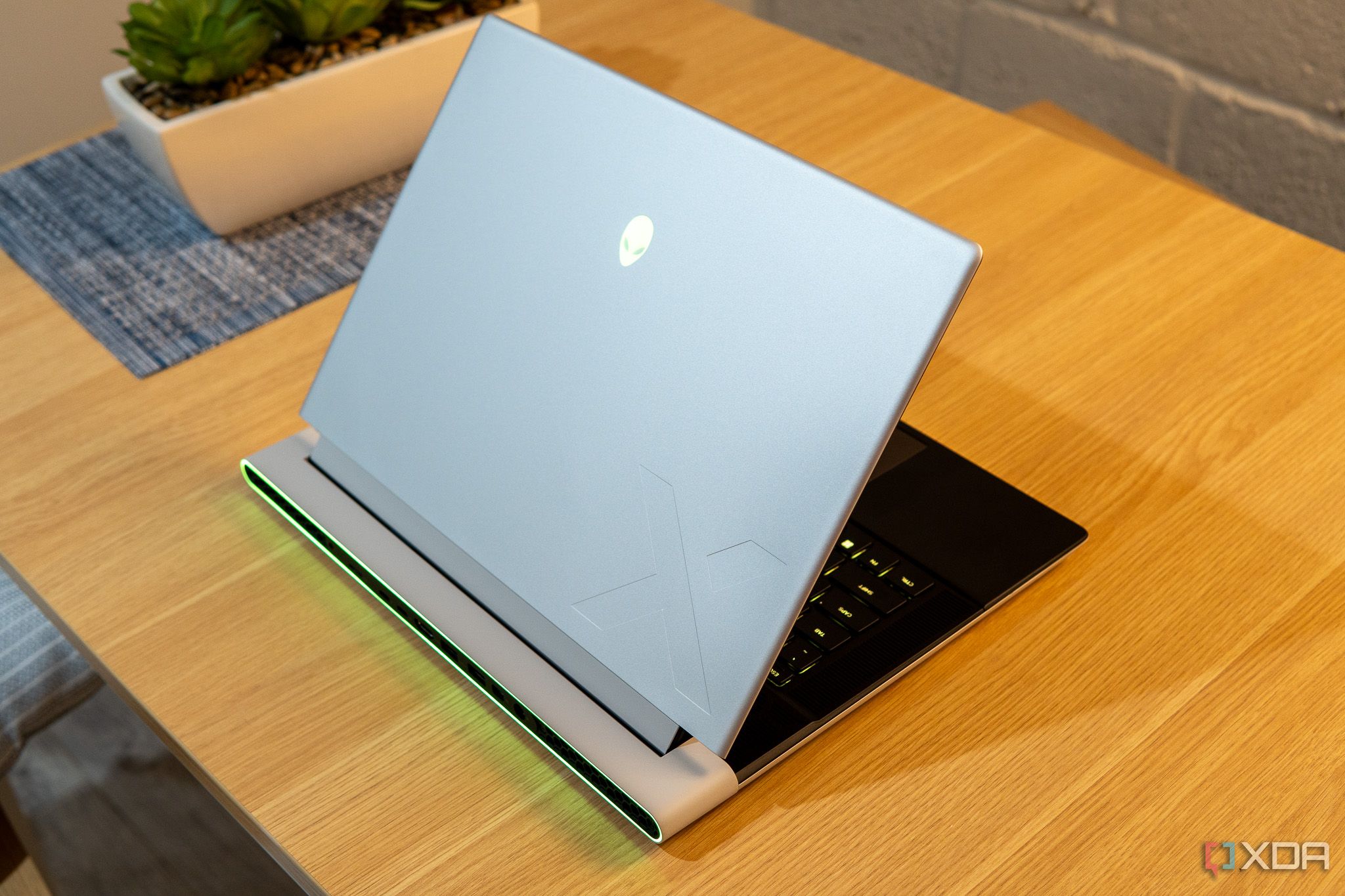Amazon Prime Day is just around the corner, running from July 11–12, along with competing events from other retailers. It's a time of great deals and sales, but it's also a time when, more than ever, you'll find yourself tempted to upgrade your current laptop. But not every deal is a good deal.
We've already highlighted some great laptop deals ahead of Prime Day, but you're likely to find a lot more if you're scrolling through Amazon to find your next rig. Seeing a big discount, however, doesn't mean you should buy the product in question. Many times, especially at Amazon, you're going to find deals on computers with very old, slow, or unsupported hardware, or devices from brands you've never heard of. There are a lot of things you'll need to watch out for and avoid.
Don't fall for old specs
As mentioned above, a lot of the laptops you're going to find on sale during Prime Day are going to have very old specs, especially at Amazon itself. There are a lot of third-party sellers on Amazon that love to pass off old computers as new hardware, even going as far as to label a laptop with words like "newest" or "latest" when, in fact, the laptop is from years ago and isn't that fast in the first place. The biggest discounts at other retailers will also often be on older hardware, and it may not be worth it.
If you're shopping for a new laptop, the oldest we'd recommend going with is an Intel 11th-generation processor (the latest available is the 13th-generation) or an AMD Ryzen 5000 series processor (the latest option is the Ryzen 7000 series). Look for these numbers in the processor name to make sure you're buying the right product. There may also be some Celeron or Pentium models that can be worth it if you're shopping for a very cheap Chromebook, but we recommend avoiding these with Windows laptops.
For gaming laptops, we also recommend getting a laptop with at least an Nvidia GeForce RTX 30 series laptop GPU or AMD Radeon RX 6000 series, which are from last year. If you see an Nvidia GeForce RTX 2050 or GTX 1650, or something like an AMD Radeon RX 5500M, that's too old to be worthwhile by today's standards.
There are a lot of third-party sellers on Amazon that love to pass off old computers as new hardware.
We also don't recommend buying any Windows laptop with less than 8GB of RAM, even if it's heavily discounted. Windows 11 itself requires 4GB, so you'll have a pretty mediocre experience if you only have that much. 8GB is essentially the bare minimum nowadays. For a cheap Chromebook, 4GB may still be sufficient since ChromeOS is more lightweight than Windows, but even then we recommend upgrading to 8GB. For storage, we'd recommend finding a laptop with an SSD (usually 128GB or higher) if you're shopping for a Windows laptop, or at least 64GB of eMMC storage for a Chromebook.
We've only addressed Windows laptops and Chromebooks so far, and that's mostly because MacBooks are fairly high-end, so as long as you buy something modern, you'll be fine. You should avoid any MacBook or Mac desktop that still has an Intel processor at this point. We'd recommend trying to stick with devices that have M2 series processors, but if you find a big discount on an M1 model, it may still be worth it, depending on how big the discount is.
Buy from reliable brands
You'll also see a lot of laptops from brands you've probably never heard of, especially on Amazon. That very likely means that the brand isn't reputable or reliable, and you should stay away from these deals no matter how cheap they are. Buying from an unreliable brand means you're more likely to run into failures (on top of having poor performance), and you'll have a hard time trying to return or repair your laptop if you need to. There are a lot of brands you can trust — Apple, Microsoft, HP, Lenovo, Dell, Acer, Asus, MSI, Razer, and so on. If anything looks too strange, look up the brand to make sure you can expect a quality product and customer experience.
In cases like Amazon or Newegg, it's also very important to buy from a reputable seller. Ideally, you'll want to buy products that are sold, or at the very least, shipped by Amazon or Newegg itself. This gives you a safety net for returns and complaints since you'll have a much easier time communicating with these companies than you might with completely strange third-party sellers. Of course, there are third-party sellers on Amazon and Newegg that can be reliable, and they might even be established stores or manufacturers using these platforms to increase their reach. Both Amazon and Newegg let you see the reputation of each seller, so you can make sure you're buying from trustworthy companies.
Make sure it's a good deal
Retailers and sellers have a tendency to increase prices in the lead-up to a sales event to make it seem like the discounts are much bigger than they usually are. They also might incorrectly claim that a regular price is actually a discounted one. It's a good idea to use websites like CamelCamelCamel or an extension like Keepa or Honey to make sure that an ongoing price is an actual deal.
It's also important to weigh the actual price and the discount against the quality of the product. You're going to see bigger discounts on laptops with older processors, but that doesn't always mean you should go for them. Aside from the very old laptops you should never buy, you should also keep in mind that a laptop with a 12th-generation Intel CPU may have a bigger discount than a 13th-generation model, but that 13th-generation model will have better performance and likely be supported for longer. You have to decide if that difference in price is big enough to justify buying an older model.
Make sure you need it
One last piece of financial advice is to avoid buying things you don't need. Just because something is heavily discounted doesn't mean you must have it. If you buy something that usually costs $3,000 for $2,000, but you don't need it, you're not saving $1,000; you're just spending $2,000.
If you already have a laptop with a 12th-generation Intel processor or AMD Ryzen 6000, or if you have a gaming laptop with an Nvidia GeForce RTX 30 series GPU, you probably don't need to upgrade yet. Wait a couple of years to find a good deal on an upgrade that's actually significant to you.
Additionally, if you're buying a laptop for office work, you don't need to buy a super-expensive gaming laptop just because it's discounted. Gaming laptops have a lot of powerful specs you're never going to need if you're just reading and writing emails, drafting documents, or making presentations. You can get a laptop that's just as good for a lot less money. On the other hand, a business laptop likely won't do you any good for gaming or heavy video editing, so you shouldn't spend money on a weaker laptop just because it's cheap.
Find the best deals
Whether you're buying a laptop for work or for gaming, work, or school, this advice should help ensure you're making a good purchase. As we've mentioned at the top, we've rounded up some deals ourselves which stick to the guidelines we mentioned here, so you can check those out if you want to find something good. We also have lists of deals on monitors, SSDs, and other PC accessories.




